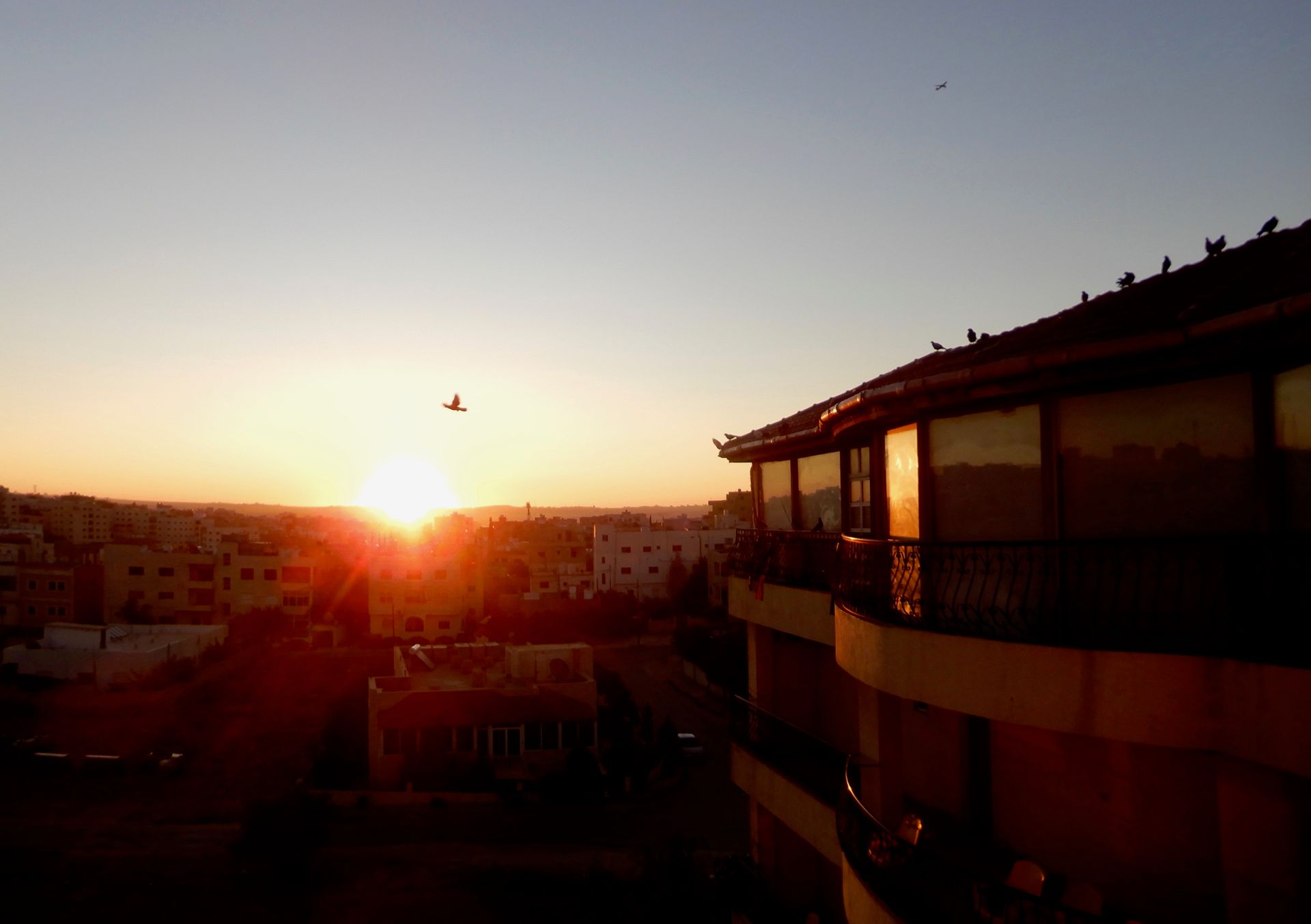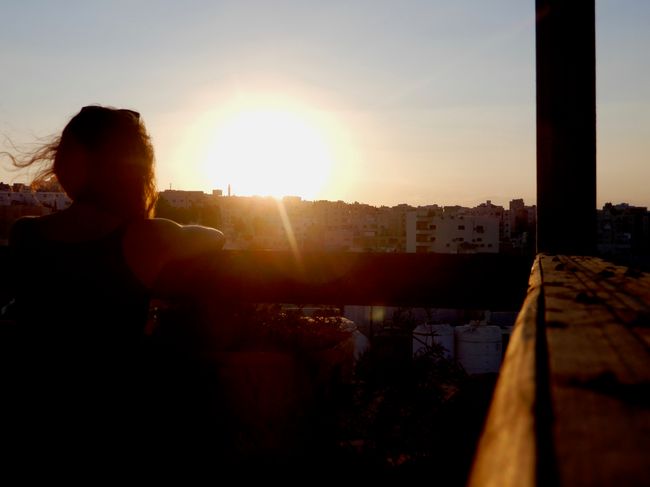Holy Sites and Nablus
Atejade: 27.02.2020
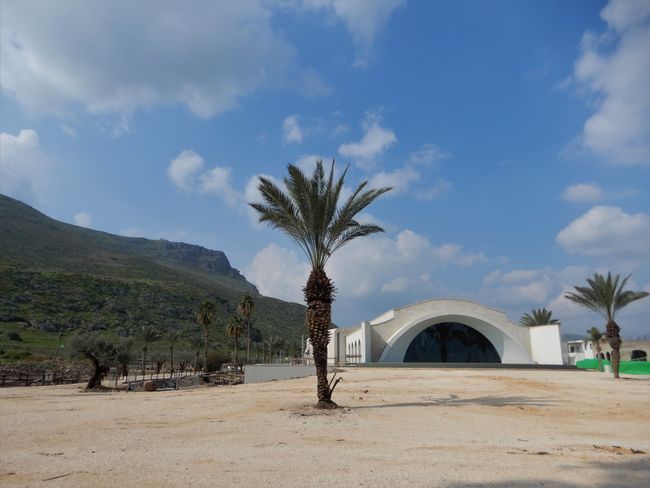
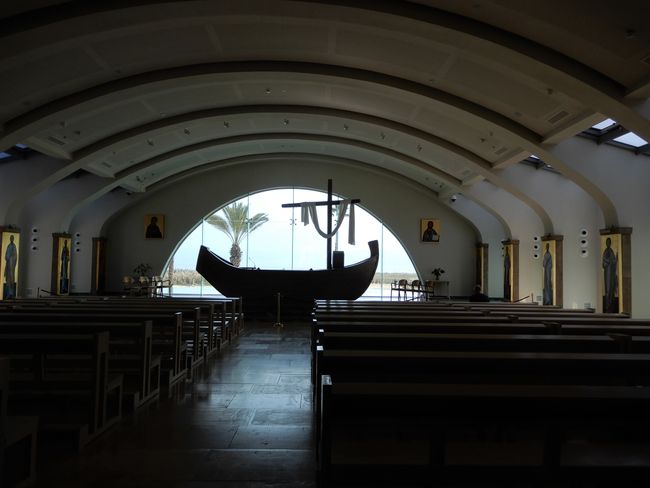
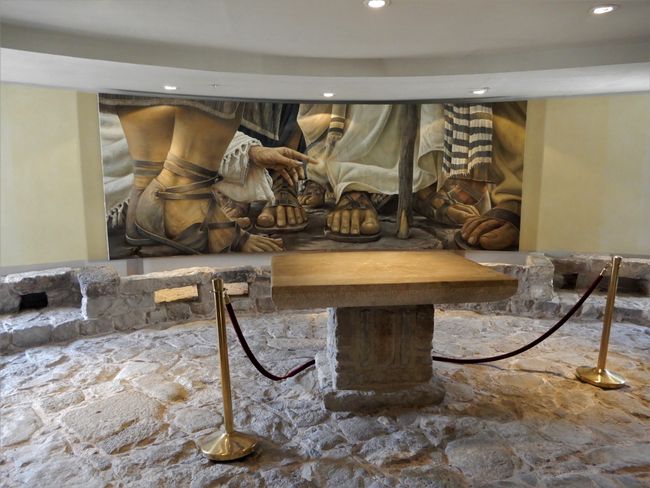
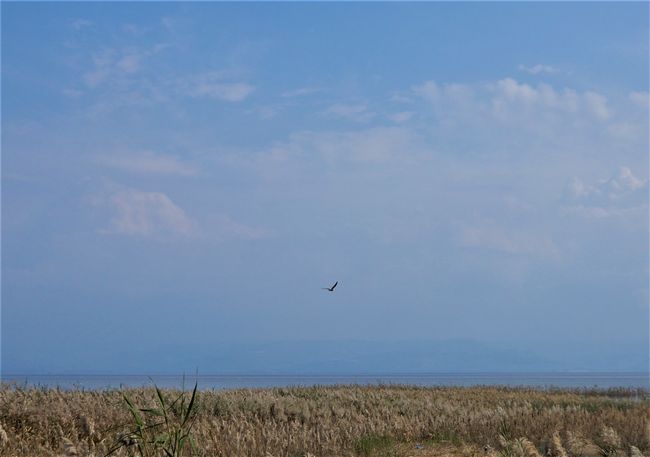
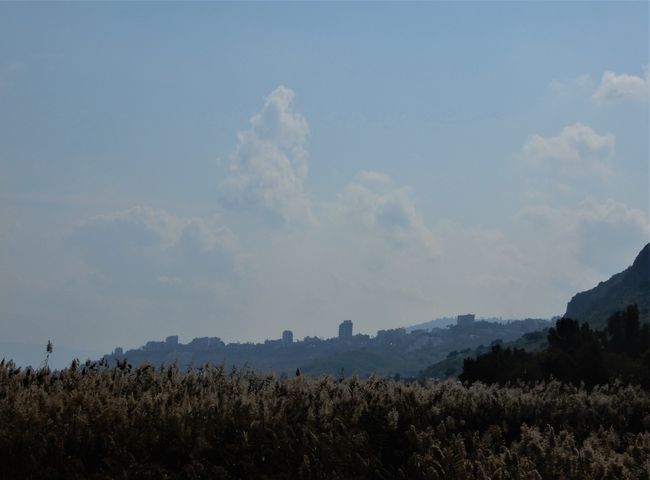
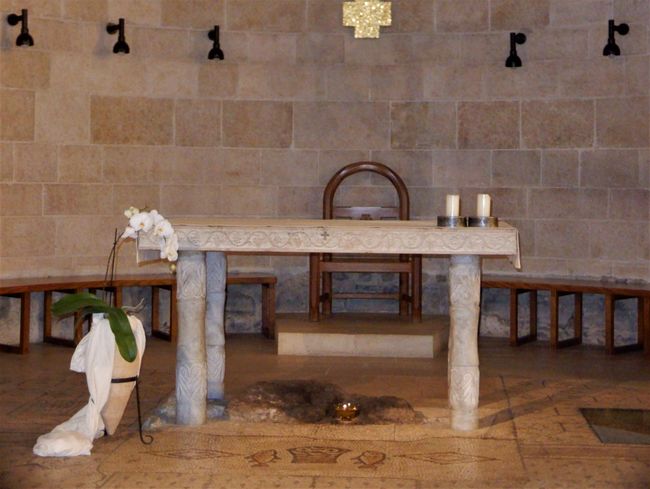
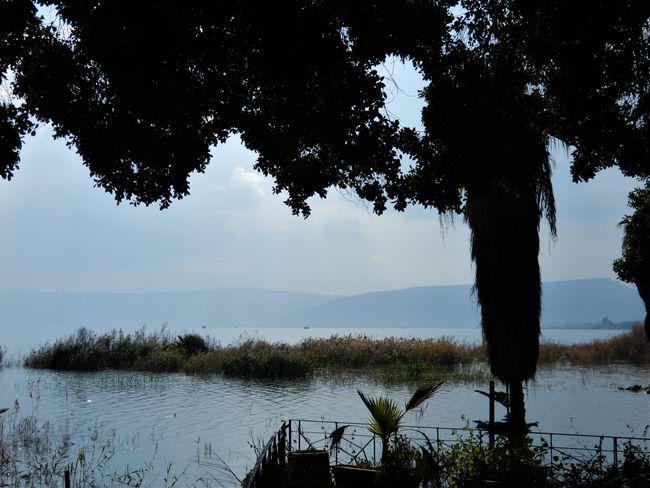
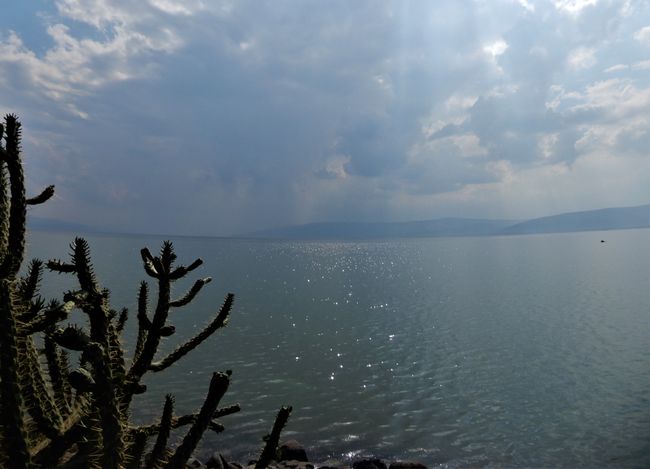
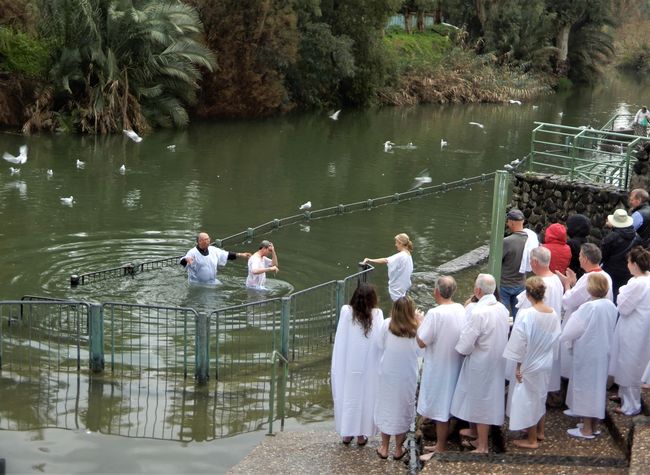
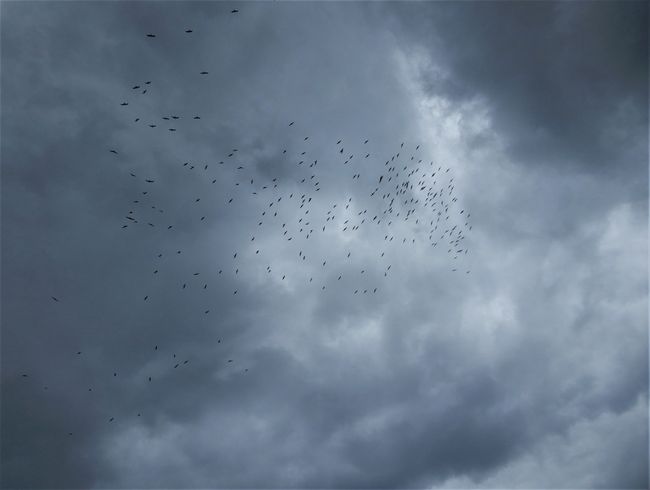
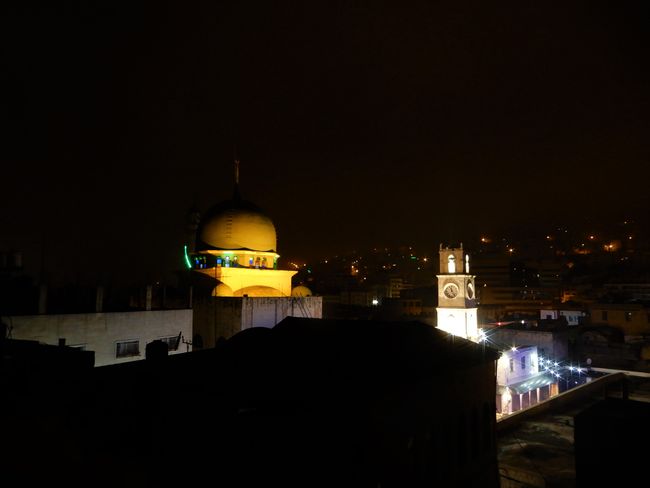
Wednesday, February 19
8 am. After showering and having breakfast cookies, we get into our small rental car with the aim of exploring the area around the Sea of Galilee. Our first stop is Magdala, the birthplace of Mary Magdalene, where a beautiful newly built church is located right by the sea. We sit by the sea for a while and enjoy delicious pastries that we got fresh from the bakery before continuing our journey to the Church of the Multiplication of Loaves and Fishes.
Just like during our Christmas trip, it's crowded at this tourist hotspot, so we quickly take a look at the old mosaic picture in front of the altar and then drive on to Capernaum. Capernaum plays an important role in the biblical Gospels. Several disciples of Jesus are said to come from this fishing village. The tourist rush is enormous here as well. So we also visit the local church, spend a short time by the sea, and then continue to the next holy site: the Baptismal Site on the Jordan River.
According to tradition, the baptism of Jesus by John the Baptist is actually located further downstream near Jericho. Nevertheless, many Christians choose to be baptized here in memory of Jesus' baptism. Another tourist had already told us about the bizarre sight at this place last night, but now we can see it for ourselves. First, we are guided through a large souvenir shop and then we reach the shore of the Jordan, where we can already see a group of tourists standing around a pastor in long white shirts that look like nightgowns. We now observe how he invites each person to come to him in the Jordan after a small liturgy, dips them underwater, and blesses them. We are aware that it must mean a lot for people to be baptized a second time in the holy Jordan, but from the outside, it is a really funny sight.
We observe the hustle and bustle there for a while and then drive back to Tiberias, where we promptly return our rental car. After taking a short walk through the city, we realize that there is nothing special to see here, so we decide that it's time to leave soon. Nablus in the West Bank is supposed to be the last stop of our trip. So we pick up our luggage at the hostel and cautiously ask about public transportation to Nablus. As we have experienced before, it is not enjoyable to ask about places in the West Bank on the Israeli side, which is confirmed again now. There is no transportation to the West Bank, the receptionist tells us bluntly. She can show us the Google search results if we don't believe her. Furthermore, once we enter the West Bank, we will be on our own.
Whatever she is trying to tell us - we decide to walk to the main bus station first and from there, take another means of transportation to a place where there are connections to the West Bank. When we arrive there, we would like to ask again how to proceed, but now we are really unsure who we can ask. The many ultra-Orthodox travelers around us do not make us feel like we should mention a place in the West Bank out loud.
So we wait at the bus stop to Jerusalem when a group of young girls walks past us speaking Arabic. That sounds like music to our ears. Clara and I walk straight to them and ask for directions to Nablus. "Nablus!!!?" The girls can hardly believe what we say and shout with joy. I suddenly feel at home. They only speak little English and call two security guards to help us, who are also Palestinians. After about five people have made phone calls and are discussing intensively, it turns out that we probably have no choice but to initially head towards Jerusalem and then somehow continue to Nablus.
Alright then. We get on the large bus that arrives now, and the friendly bus driver proves to be very helpful. He will drop us off at a place halfway to Jerusalem from where we can enter the West Bank. Done deal: after about an hour's drive, we stop at a rest area where the bus driver talks to a few Palestinians and arranges a taxi to Nablus for us. While I'm still half-dozing on the bus, I don't notice anything that's going on outside, but Lea and Clara tell me that an older woman overheard our destination and was shocked. She asked why we wanted to go to Nablus, as there are no Israelis there anymore, only Arabs. That's dangerous, she said. When Lea replied that we can handle it and have already been in Palestine before, her reaction was, "What is Palestine?" I'm almost glad that I was still dozing at that time.
So now we are sitting with our luggage at the rest area with three men and waiting for a taxi, when it turns out that our driver has been sitting in front of us all along. We're not sure if it was planned from the beginning, but one of them eventually asks us to get into his car, where we get in together with his friend and drive off. Nasser and Fadi are now taking us to Nablus.
It's really a nice gesture - because Nablus is still a good hour's drive away from here, as we now realize. They stop again in between, get us some soft drinks, and then continue driving to loud Arabic music until we reach the checkpoint into the West Bank. As we already know, you only get stopped there if you leave the West Bank again, so we can simply drive past the soldiers. However, the driver of a car coming towards us gets out of his vehicle. The soldiers push him into a corner where he stops and pulls up his sweater and t-shirt. My large bewildered eyes can't look away from the sight. Nasser and Fadi are not surprised. This is a normal procedure for Palestinians leaving the West Bank, they tell us. They may be detained for hours at the checkpoint before they are allowed to return to their village. I feel really sick at the thought of what we have subjected the two of them to with the taxi ride.
Arriving in Nablus, Nasser and Fadi invite us to have a round of Knafeh - Nablus is the most famous city for this Arabic dessert. As so often, our conversation takes a political turn. They want to know what people in Germany think about Palestine. We tell them somewhat ashamed that Palestine is usually mentioned in the news because of conflicts or attacks, which doesn't surprise them. They are aware that many associate Palestine with the terrorist group Hamas. However, the majority of Palestinians simply want peace. Regardless of how much land they ultimately possess. They just want to live in peace. I really wish for them and all other Palestinians that this wish, which is so often expressed to us, will eventually come true.
It's almost 10 pm by now, and we don't have accommodation for tonight - only a recommendation from a friend of Lea's who was in Nablus a few months ago. Without knowing the exact address, we wander around the dark streets of Nablus until we can't drive any further by car. Despite strong protests from Nasser and Fadi, who would have liked to take us directly to our accommodation, we now set off on foot to find Soufan's Guesthouse. So we walk for a while through the beautiful but deserted alleys of the old town of Nablus until we reach a square where Google Maps shows us the location of the guesthouse. We don't see a hostel, but there are two teenagers sitting on the square, whom we now ask for help. They recognize the location on a Google Maps image and now accompany us there.
Shortly afterwards, we are standing in front of the entrance door of Soufan's Guesthouse, which is not surprisingly already closed. According to Google, check-in is only until 7:30 pm. However, one of the two boys takes out his phone and calls the number displayed on the entrance door. "10 minutes," he tells us when he hangs up. And indeed, it doesn't take long before a man comes running towards us. Sami, the owner of the accommodation, warmly greets us and apologizes for the wait - even though we are the ones who want to check in almost four hours too late. He leads us through a courtyard and into a beautiful old building. In a cozy communal room with high ceilings, he asks us to take a seat and brings us tea. He tells us that this 200-year-old house has been in his family for generations and that he converted it into a guesthouse two years ago. We are overjoyed to sit here with him after a long day.
We chat with Sami for a while, and then he shows us the rooms and the rooftop terrace, from where Nablus' lights shine beautifully towards us. Sami's phone rings. It's Fadi, who somehow found out the number of our guesthouse. He wants to know if we arrived safely. We did.
Idahun
